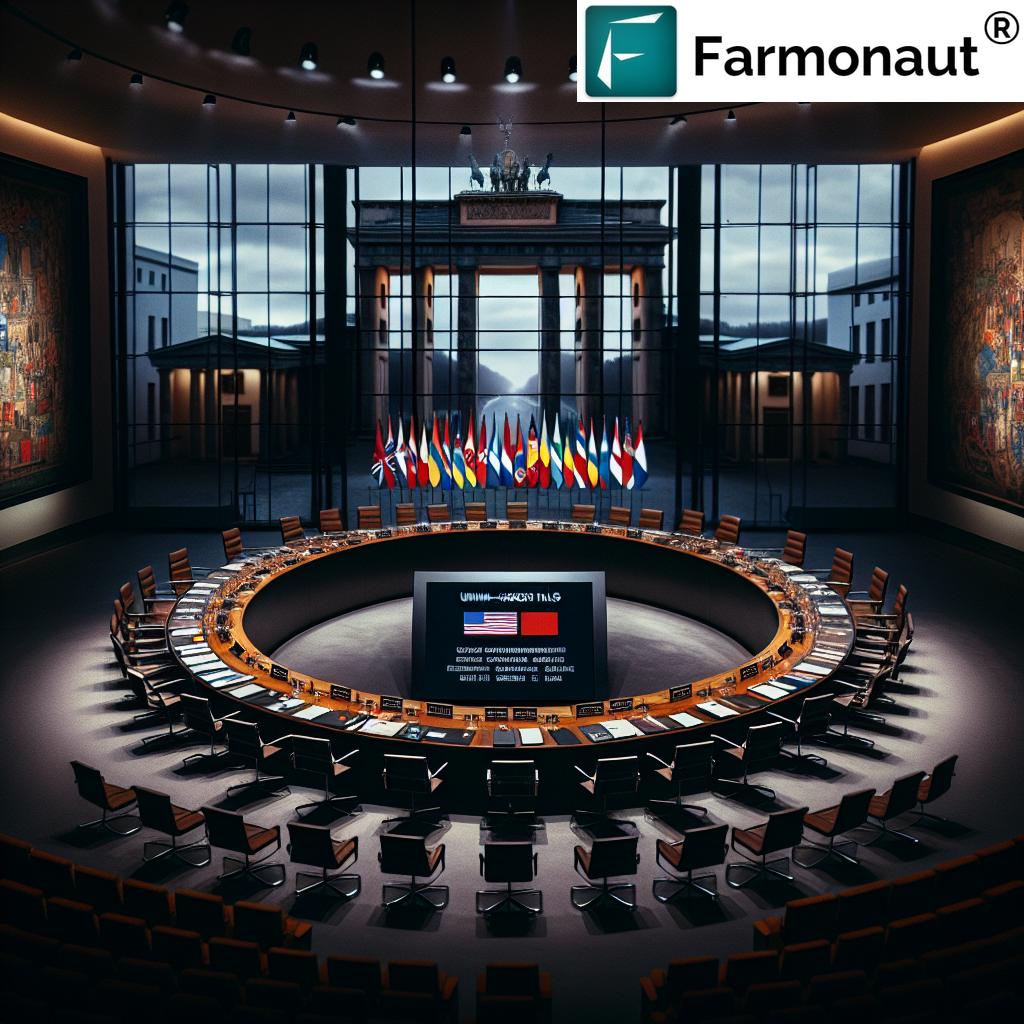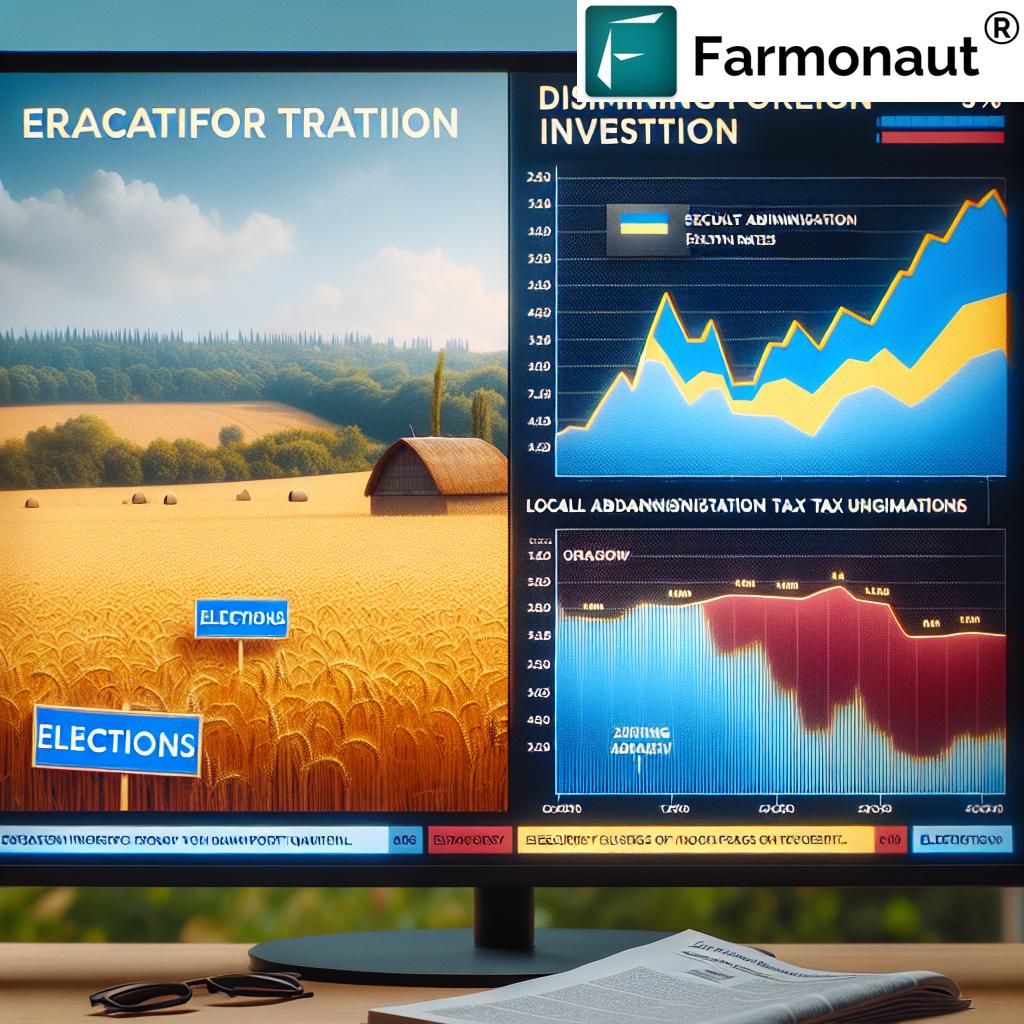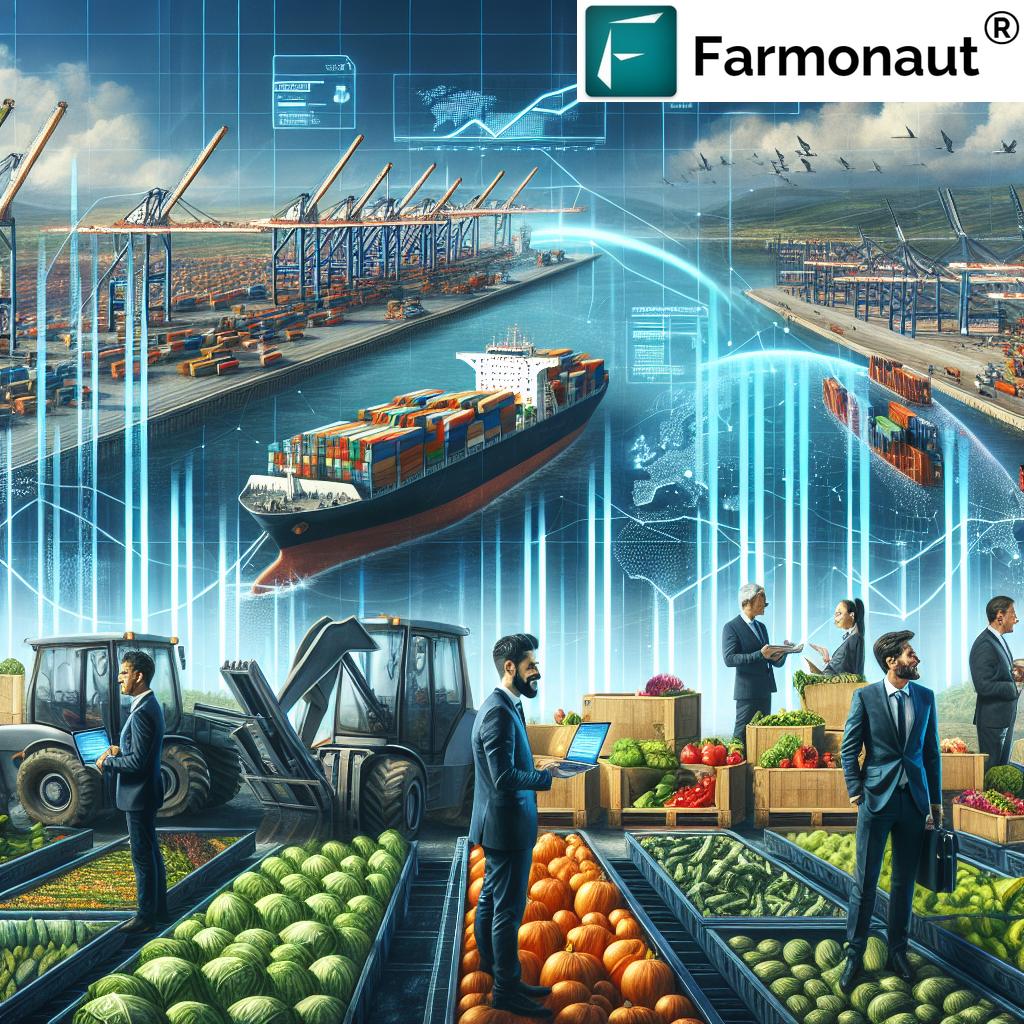Breaking: Ukraine-Russia Peace Talks Spark Controversy Amid European Security Concerns
“Recent Ukraine-Russia peace talks have sparked controversy in 27 European countries, raising security concerns across the continent.”
As we delve into the complex web of international diplomacy surrounding the ongoing Ukraine-Russia conflict, recent developments have sent shockwaves through European capitals and beyond. The latest round of peace talks between the United States and Russia has ignited a firestorm of controversy, raising serious questions about European security and the future of Ukraine. In this comprehensive analysis, we’ll explore the intricate dynamics at play, the potential implications for global stability, and the economic challenges facing nations grappling with the fallout from these geopolitical tensions.
The Controversial Claims: Unraveling Trump’s Statements
At the heart of the current controversy are comments made by former U.S. President Donald Trump during a press conference at Mar-a-Lago. Trump’s remarks have sent diplomatic circles into a frenzy, with European leaders scrambling to manage the fallout. Let’s break down the key points:
- Allegations of Ukrainian War Guilt: In a stunning assertion, Trump suggested that Ukraine bore responsibility for the Russian invasion, stating that they “should have ended it three years ago” and “should have never started it.”
- Calls for Ukrainian Elections: Trump advocated for elections in Ukraine as part of any potential peace deal, claiming this demand was coming from him and “many other countries.”
- Criticism of Zelenskyy: The former president mocked Ukrainian President Volodymyr Zelenskyy’s approval rating and appeared to question his leadership.
These statements have sent shockwaves through diplomatic channels, with many European leaders expressing deep concern over their potential impact on ongoing peace efforts and regional stability.

European Reactions and Security Concerns
The reaction from European capitals has been swift and marked by a mix of alarm and strategic calculation. Key developments include:
- Emergency Summits: French President Emmanuel Macron has mooted the possibility of a second emergency Paris summit to address the fallout from Trump’s comments.
- Diplomatic Tightrope: European leaders, including UK Prime Minister Rishi Sunak, are attempting to balance diplomatic relations with the U.S. while maintaining support for Ukraine.
- Proposed European Peacekeeping Force: Discussions have emerged around the potential for a European peacekeeping force in Ukraine, should a peace deal be reached.
These developments underscore the delicate balance European nations must strike in navigating the complex geopolitical landscape. The controversy has also reignited debates about European security autonomy and the continent’s reliance on U.S. support.
The U.S.-Russia Talks: A Closer Look
The recent talks between U.S. Secretary of State Marco Rubio and Russian Foreign Minister Sergey Lavrov in Saudi Arabia have added another layer of complexity to the situation. Key outcomes and points of discussion included:
- Potential Sanctions Relief: There were strong indications that the U.S. might consider dropping sanctions on Russia if a peace deal is reached.
- NATO Peacekeepers: Russia expressed opposition to any NATO peacekeeping forces being stationed in Ukraine.
- Economic Opportunities: Both sides discussed potential “economic opportunities” in the aftermath of the conflict.
These talks have raised eyebrows among Ukraine’s supporters, with concerns that Ukrainian interests may be sidelined in pursuit of a broader U.S.-Russia détente.
Ukraine’s Perspective: Frustration and Determination
The Ukrainian response to these developments has been one of frustration and resolve. Former Ukrainian Prime Minister Arseniy Yatsenyuk expressed visible anger when questioned about calls for Ukrainian concessions, highlighting the human cost of the conflict:
“Hundreds of thousands dead, killed and wounded. After the atrocities the Russian army committed in Ukraine … what kind of other concessions could Ukrainian people give?”
This sentiment reflects a broader Ukrainian determination to maintain sovereignty and resist what many see as unjust demands for territorial or political concessions.
Economic Implications: A Global Ripple Effect
The geopolitical tensions surrounding the Ukraine-Russia conflict have far-reaching economic implications, affecting nations well beyond the immediate region:
- Inflation Concerns: The latest data shows CPI inflation in the UK hit 3% in January, a significant jump from 2.5% the previous month.
- Foreign Investment Challenges: A Bank of America survey indicates market sentiment toward Britain is at an 11-month low, raising concerns about foreign investment.
- Local Government Pressures: In the UK, many local councils are proposing significant council tax increases, with some reaching as high as 7.5%.
These economic challenges underscore the interconnected nature of global politics and finance, with geopolitical tensions having tangible impacts on everyday economic realities.
“UK local governments face economic challenges, with council tax increases affecting over 300 districts nationwide.”
Timeline of Key Events in Ukraine-Russia Peace Talks
| Date | Event | Key Players | Implications |
|---|---|---|---|
| February 20, 2024 | U.S.-Russia Talks in Saudi Arabia | Marco Rubio, Sergey Lavrov | Potential sanctions relief discussed, opposition to NATO peacekeepers |
| February 21, 2024 | Trump’s Controversial Press Conference | Donald Trump | Allegations of Ukrainian war guilt, calls for elections in Ukraine |
| February 22, 2024 | European Leaders’ Emergency Discussions | Emmanuel Macron, Rishi Sunak | Consideration of emergency summit, diplomatic balancing act |
| February 23, 2024 | Ukrainian Response to Peace Talk Developments | Arseniy Yatsenyuk | Strong opposition to concessions, emphasis on Russian atrocities |
The Role of Technology in Modern Diplomacy and Conflict Resolution
As we navigate these complex geopolitical waters, it’s worth considering the role that technology plays in modern diplomacy and conflict resolution. Advanced satellite technology, data analytics, and communication platforms are increasingly shaping how nations interact and negotiate. In this context, companies like Farmonaut, while not directly involved in political negotiations, offer insights into how technology can provide valuable data and insights in complex situations.
Farmonaut’s satellite-based crop health monitoring and AI advisory systems demonstrate the power of technology in providing real-time, data-driven insights. While their focus is on agriculture, the principles of using satellite imagery and AI for decision-making have broader applications, including in the realm of international relations and conflict resolution.
For instance, satellite imagery can be crucial in verifying compliance with peace agreements or monitoring troop movements. AI-driven analysis could help predict potential flashpoints or assess the economic impact of various policy decisions. While Farmonaut’s specific technologies are tailored for agricultural use, they showcase the potential for similar technologies to play a role in complex geopolitical scenarios.
Security Guarantees and Peacekeeping Proposals
A key point of discussion in the ongoing peace talks is the nature of security guarantees for Ukraine and the potential implementation of peacekeeping forces. Several proposals have emerged:
- European Peacekeeping Force: There’s growing support for a European-led peacekeeping mission, potentially excluding NATO involvement to address Russian concerns.
- U.S. Backstop: Some proposals suggest a U.S. “backstop” to provide additional security guarantees, though Trump’s recent comments cast doubt on American willingness to participate directly.
- Air Support: The UK has reportedly considered offering air support, including Typhoon fighter jets, as part of a potential peace deal.
These proposals highlight the complex balancing act required to address Ukraine’s security concerns while navigating Russian opposition to NATO involvement.
The Economic Dimension: Sanctions, Investment, and Recovery
The economic aspects of the conflict and potential peace deal are crucial considerations for all parties involved:
- Sanctions Relief: The potential lifting of sanctions on Russia has been a key point of discussion, with significant implications for global trade and investment.
- Investment Challenges: Countries like the UK are grappling with decreased foreign investment sentiment, partly due to geopolitical uncertainties.
- Recovery and Reconstruction: Any peace deal will need to address the massive task of rebuilding Ukraine’s infrastructure and economy.
These economic factors are inextricably linked to the political and security dimensions of the conflict, highlighting the need for a comprehensive approach to peace negotiations.
Domestic Political Implications
The Ukraine-Russia conflict and peace talks are having significant impacts on domestic politics in various countries:
- U.S. Presidential Race: Trump’s comments have reignited debates about U.S. foreign policy and its role in European security.
- European Leadership: Leaders like Rishi Sunak are navigating complex diplomatic waters, balancing support for Ukraine with maintaining relations with the U.S.
- Opposition Strategies: In the UK, the Liberal Democrats are positioning themselves as staunch opponents of Trump’s approach, potentially carving out a distinct foreign policy stance.
These domestic political considerations add another layer of complexity to the already intricate peace negotiation process.
Explore Farmonaut’s Satellite API
The Role of International Organizations
International organizations play a crucial role in facilitating dialogue and providing frameworks for peace:
- United Nations: The UN continues to be a forum for multilateral discussions and potential peacekeeping missions.
- OSCE: The Organization for Security and Co-operation in Europe has been involved in monitoring and facilitating dialogue in the region.
- EU Institutions: Various EU bodies are actively engaged in shaping European responses to the conflict and peace proposals.
These organizations provide crucial platforms for diplomatic engagement and could play key roles in implementing and monitoring any eventual peace agreement.

Technological Advancements and Their Impact on Conflict Resolution
As we consider the complexities of modern diplomacy and conflict resolution, it’s worth examining how technological advancements are shaping these processes. While Farmonaut’s focus is on agricultural technology, the principles behind their innovations have broader implications:
- Satellite Imagery: Just as Farmonaut uses satellite data for crop monitoring, similar technology could be employed to verify compliance with peace agreements or monitor troop movements.
- AI and Machine Learning: Farmonaut’s AI advisory system demonstrates how artificial intelligence can process complex data to provide actionable insights. In a diplomatic context, AI could potentially analyze vast amounts of information to identify patterns and predict potential conflict escalations.
- Blockchain for Transparency: Farmonaut’s use of blockchain for supply chain traceability showcases how this technology can ensure transparency and trust. In peace negotiations, blockchain could potentially be used to create immutable records of agreements and actions taken by various parties.
While these technologies are not directly applicable to the current Ukraine-Russia situation, they illustrate the potential for technological innovation to contribute to conflict resolution and peacekeeping efforts in the future.
Access Farmonaut’s API Developer Docs
The Human Cost and Humanitarian Concerns
Amidst the geopolitical maneuvering and economic considerations, it’s crucial to remember the human cost of the conflict:
- Civilian Casualties: Thousands of civilians have lost their lives or been displaced due to the conflict.
- Humanitarian Crisis: The war has created significant humanitarian challenges, including food shortages and disrupted healthcare services.
- Long-term Trauma: The psychological impact of the conflict on affected populations will likely persist long after any peace deal is reached.
Any meaningful peace agreement must address these humanitarian concerns and provide a framework for recovery and healing.
Looking Ahead: Potential Scenarios and Challenges
As peace talks continue and various stakeholders navigate the complex diplomatic landscape, several potential scenarios emerge:
- Negotiated Settlement: A comprehensive peace deal addressing security guarantees, territorial issues, and economic recovery.
- Partial Agreement: A limited agreement on specific issues, leaving other contentious points for future negotiation.
- Prolonged Stalemate: Continued conflict with intermittent negotiations but no significant breakthrough.
- Escalation: A worsening of the conflict, potentially drawing in more international actors.
Each of these scenarios presents its own set of challenges and implications for regional and global stability.
The Role of Public Opinion and Media
Public opinion and media coverage play significant roles in shaping the discourse around the conflict and peace negotiations:
- Information Warfare: Both sides engage in efforts to shape public perception, highlighting the importance of critical media consumption.
- Social Media Impact: Platforms like Twitter (now X) have become battlegrounds for narratives, with figures like Elon Musk weighing in on the conflict.
- Domestic Political Pressures: Public opinion in various countries influences the approaches taken by their leaders in peace negotiations.
Understanding and navigating these informational dynamics is crucial for all parties involved in the peace process.
Conclusion: A Delicate Balance
The ongoing Ukraine-Russia peace talks and the surrounding controversy highlight the intricate web of international relations, economic pressures, and security concerns shaping our global landscape. As leaders navigate these treacherous diplomatic waters, the need for careful, nuanced approaches becomes ever more apparent.
While technology and innovation, as exemplified by companies like Farmonaut in the agricultural sector, offer new tools for data-driven decision-making, the human element of diplomacy remains paramount. The path to a lasting peace will require not only strategic acumen but also empathy, creativity, and a steadfast commitment to human rights and dignity.
As we move forward, it’s crucial for all stakeholders – from global leaders to engaged citizens – to remain informed, critical, and committed to pursuing peaceful resolutions to conflicts. The challenges are immense, but so too are the potential rewards of a more stable, prosperous, and peaceful world.
Earn With Farmonaut
Earn 20% recurring commission with Farmonaut’s affiliate program by sharing your promo code and helping farmers save 10%. Onboard 10 Elite farmers monthly to earn a minimum of $148,000 annually—start now and grow your income!
Learn More About Farmonaut’s Affiliate Program
Farmonaut Subscriptions
Frequently Asked Questions
Q: What are the main points of contention in the Ukraine-Russia peace talks?
A: The main points of contention include security guarantees for Ukraine, the status of occupied territories, NATO involvement, and the lifting of international sanctions on Russia.
Q: How have European leaders responded to Trump’s recent comments?
A: European leaders have expressed concern and are working to balance diplomatic relations with the U.S. while maintaining support for Ukraine. Some are considering emergency summits to address the fallout.
Q: What role could a European peacekeeping force play in Ukraine?
A: A European peacekeeping force could potentially monitor ceasefire agreements, ensure the safety of civilians in conflict zones, and provide a buffer between Ukrainian and Russian forces.
Q: How might the outcome of these peace talks affect global economic stability?
A: The outcome could significantly impact global economic stability by influencing energy prices, international trade relations, and investor confidence in European markets.
Q: What are the humanitarian concerns surrounding the Ukraine-Russia conflict?
A: Key humanitarian concerns include civilian casualties, displacement of populations, food shortages, disrupted healthcare services, and long-term psychological trauma.
















